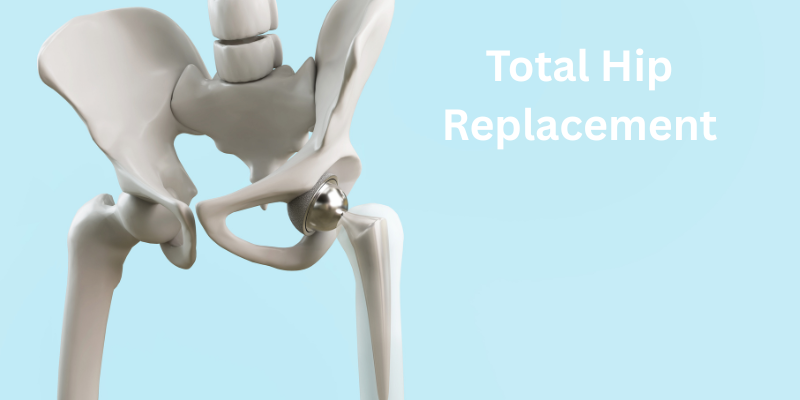Total Hip Replacement
Total Hip Replacement Treatment

Treatment Range Hospital in Hyderabad offers advanced Total Hip Replacement (THR) surgery for patients suffering from hip arthritis, avascular necrosis, or hip fractures that limit mobility and cause chronic pain. Our experienced orthopedic surgeons perform both conventional and minimally invasive THR procedures using high-quality prosthetic implants, ensuring long-term joint stability, faster recovery, and improved quality of life.
Each patient undergoes a thorough assessment, including physical examination, imaging, and lab tests to create a personalized surgical plan. During the procedure, the damaged portions of the hip joint are replaced with durable artificial components that restore natural movement and relieve pain. Our dedicated post-operative care and physiotherapy support help patients regain mobility safely and efficiently.
If you’re looking for trusted Total Hip Replacement in Hyderabad, Treatment Range Hospital is known for its expert surgical team, modern infrastructure, and patient-centered care. We provide affordable, reliable, and effective hip replacement solutions, making us a top choice for orthopedic treatment in Hyderabad.
- Your 6 - Phase health Process
Your Complete Total Hip Replacement Journey
🩺 Phase 1: Symptoms Identification
- Persistent groin or thigh pain while walking, sitting, or lying down
- Stiffness or loss of hip mobility
- Limping or difficulty bearing weight on the leg
- Pain not relieved by rest, medications, or physiotherapy
- Reduced quality of life due to mobility issues
📋Phase 2: OPD Consultation with Orthopedic Surgeon
- Clinical evaluation of hip function and gait
- Detailed review of symptoms and activity limitations
- Imaging: X-rays, MRI or CT scan to assess joint damage
- Blood tests
- Discussion on conservative vs. surgical options
🦠 Phase 3: Causes
- Osteoarthritis – wear and tear of cartilage with age
- Rheumatoid arthritis – chronic inflammation damaging the joint
- Avascular necrosis – interrupted blood supply causing bone death
- Hip fractures or injury-related degeneration
- Overuse, obesity, or structural abnormalities
🧪Phase 4: Diagnosis & Surgical Planning
- Advanced imaging to determine extent of joint damage
- Measurement of leg length and implant sizing
- Selection of implant type: cemented, uncemented, or hybrid
- Pre-surgical planning: medical optimization, anesthesia clearance, infection control
- Patient education on surgery expectations and post-op care
🦿Phase 5: Treatment – Total Hip Replacement Surgery
- Damaged bone and cartilage are removed
- Artificial joint is implanted: typically metal stem, ceramic/metal ball, and plastic/ceramic socket
- Duration: ~1–2 hours under spinal or general anesthesia
- Hospital stay: 2–4 days
- Early mobilization starts within 24–48 hours
💪Phase 6: Post-Surgery Care & Recovery
- Physical therapy begins early to improve mobility and strength
- Pain management with medications and rest
- Walking aids used initially (walker, crutches, then cane)
- Nutritional support and wound care
- Most patients return to normal activities within 3–6 months
- Regular follow-ups to monitor healing and implant alignment
Insurance Support










- Why Choose Us
Why patients trust us with their care
- Patient Testimonials
Patient stories of care and recovery










- Frequently Asked Questions
Helping you understand Our healthcare
Total Hip Replacement is a surgical procedure in which the damaged bone and cartilage of the hip joint are replaced with artificial components (prosthesis) to relieve pain and improve mobility.
THR is typically recommended for:
Osteoarthritis of the hip
Rheumatoid arthritis
Avascular necrosis (bone death due to reduced blood flow)
Post-traumatic arthritis
Severe hip fractures
You may need THR if you experience:
Chronic hip pain that limits walking or daily activities
Difficulty bending, standing, or climbing stairs
Stiffness or restricted hip motion
No relief from medications, therapy, or injections
Surgery duration: 1 to 2 hours
Hospital stay: Typically 2 to 4 days
Walking with support: Within 24–48 hours
Full recovery: Around 3 to 6 months
Hip implants are made of:
Metal alloys (titanium or cobalt-chrome)
Ceramic
Medical-grade plastic (polyethylene)